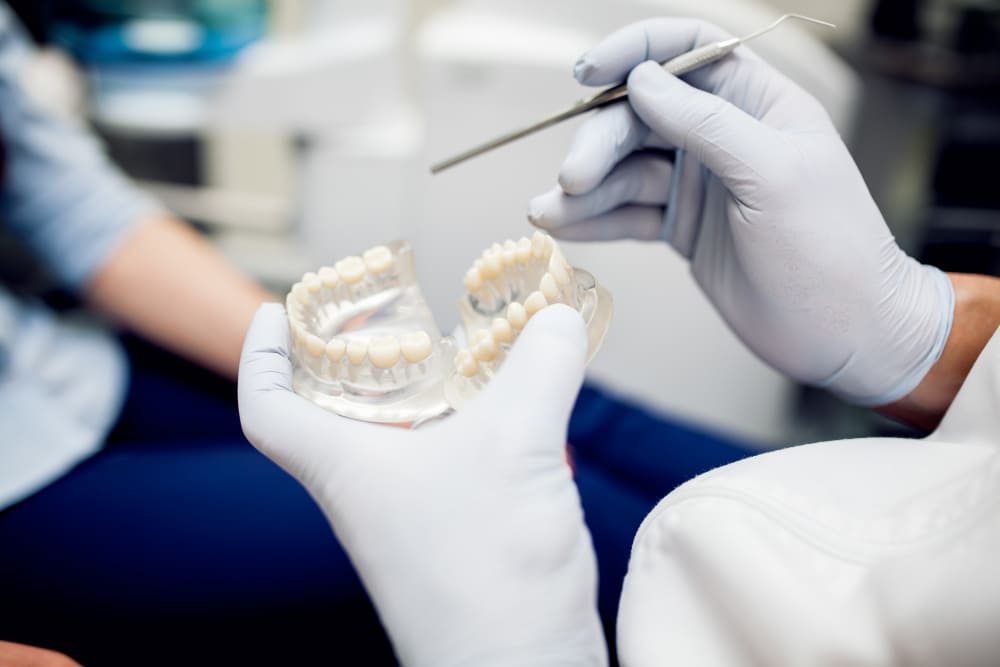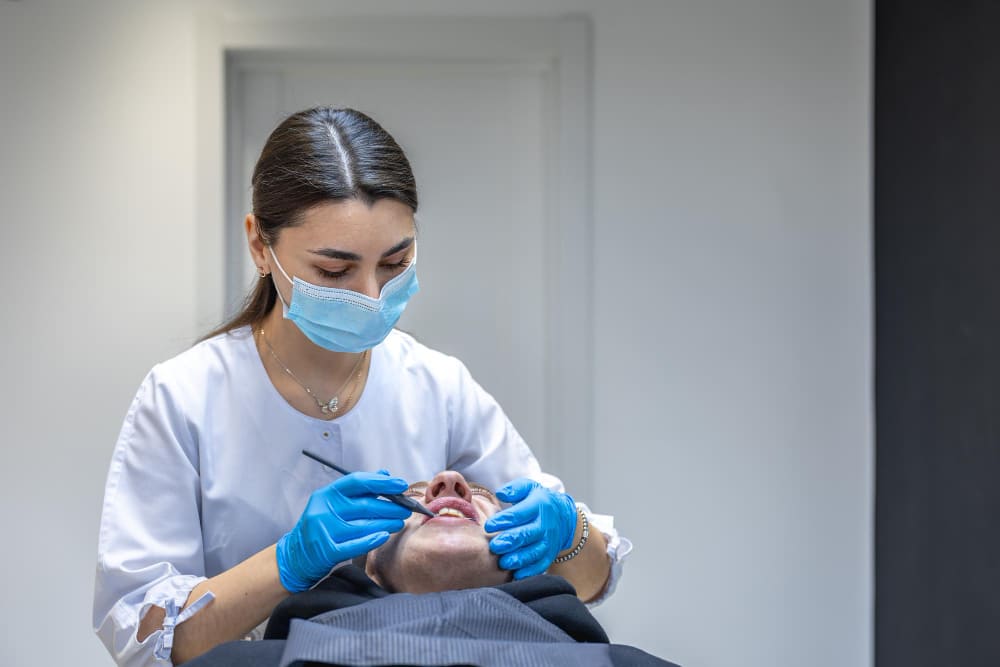A root canal is a dental procedure performed to remove the infected or damaged pulp (the soft tissue inside the tooth that contains nerves and blood vessels) and to clean and seal the inside of the tooth. The objective is to save the tooth and prevent the need for extraction.
Root canal treatment is often required due to deep decay, a cracked or broken tooth, repeated dental procedures on the same tooth, or a deep filling that has damaged the tooth. The goal is to prevent the spread of infection to other teeth or other parts of the body.
It is important to see a dentist immediately if you experience any of these common warning signs:
 Severe toothache or
pain when chewing or applying pressure.
Severe toothache or
pain when chewing or applying pressure. Sensitivity to hot or
cold temperatures that lingers after the stimuli have been removed.
Sensitivity to hot or
cold temperatures that lingers after the stimuli have been removed. Swelling, tenderness,
or redness in the gums near the affected tooth.
Swelling, tenderness,
or redness in the gums near the affected tooth. A small bump or pimple
on the gums (indicating an infection/abscess).
A small bump or pimple
on the gums (indicating an infection/abscess). Darkening or
discolouration of the affected tooth.
Darkening or
discolouration of the affected tooth.
X-rays are taken, and an opening is made in the crown of the tooth to access the pulp chamber.
The infected or damaged pulp is removed from the chamber and the root canals.
The canals are meticulously cleaned, disinfected, and shaped in preparation for filling.
The cleaned canals are filled with a biocompatible material and sealed to prevent re-infection.
Your concerns, answered clearly and honestly.
Root canal treatment (also called endodontics) is needed when the blood or nerve supply of the tooth (known as the pulp) is infected through decay or injury.
If the pulp becomes infected, the infection may spread through the root canal system of the tooth. This may eventually lead to an abscess. If root canal treatment (RCT) is not carried out, the infection will spread and the tooth may need to be taken out.
No. A local anaesthesia is used and it should feel no different to having an ordinary filling done.
The aim of the treatment is to remove all infection from the root canal. The root is then cleaned and filled to prevent any further infection. Root canal treatment is a skilled and time-consuming procedure. Most courses of treatment will involve two or more visits to your dentist. At the first appointment, the infected pulp is removed. Any abscesses, which may be present, can also be drained at this time. The root canal is then cleaned and shaped ready for the filling. A temporary filling is put in and the tooth is left to settle. The tooth is checked at a later visit and when all the infection has cleared, the tooth is permanently filled.
In the past, a root filled tooth would often darken after treatment. However, with modern techniques this does not usually happen. If there is any discolouration, there are several treatments available to restore the natural appearance.

A fixed prosthetic device used to replace missing teeth, restoring function and aesthetics.
Know More
A foundational procedure to rebuild jaw bone density, preparing you for successful dental implants.
Know More
Relieving pain and preparing your mouth for health with comfortable, planned surgical procedures.
Know More
Treating and preventing infection of the tissues supporting your teeth to preserve long-term health.
Know More
Effective treatments and preventative care to stop the breakdown of tooth enamel and eliminate painful cavities.
Know More